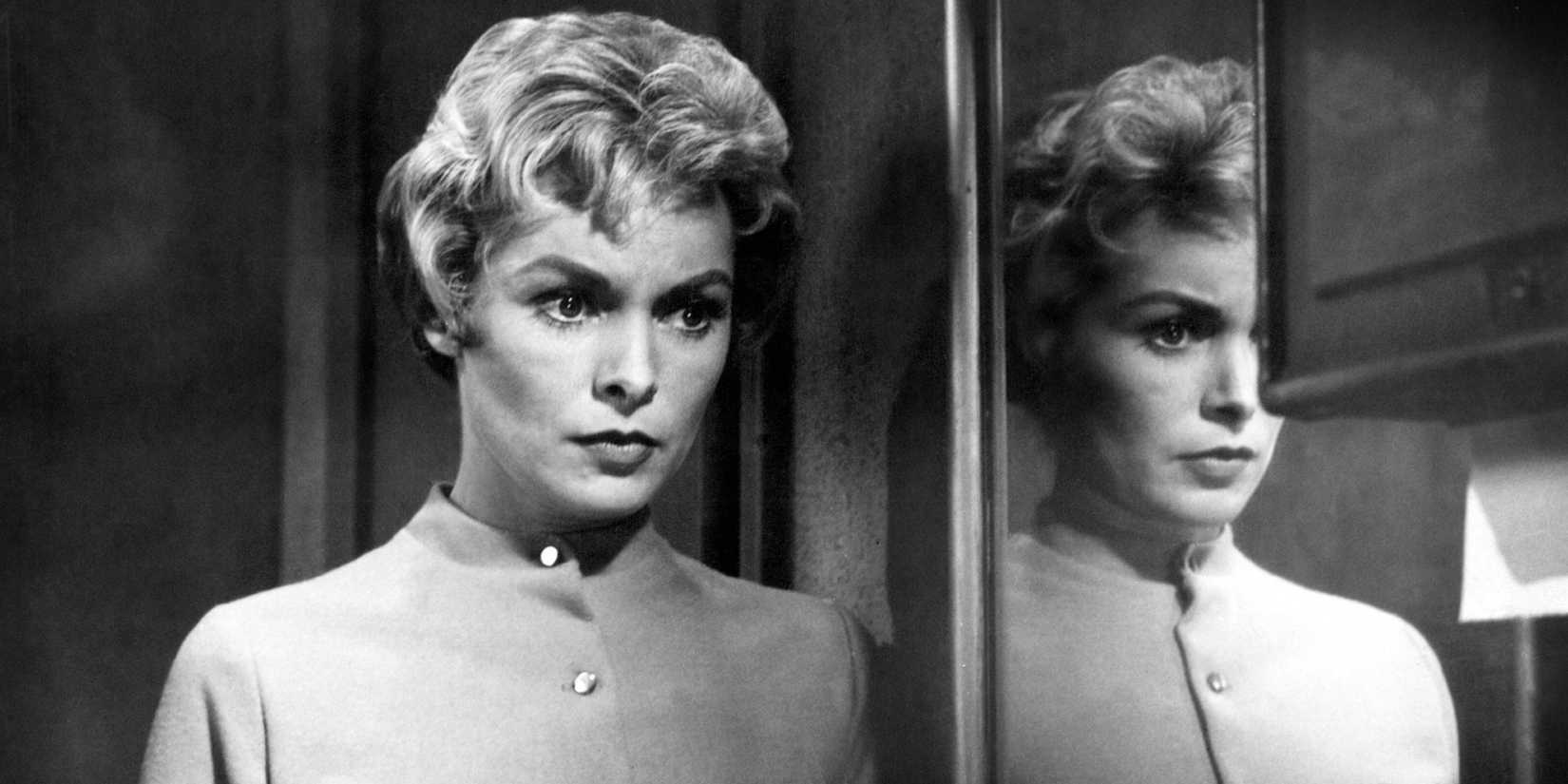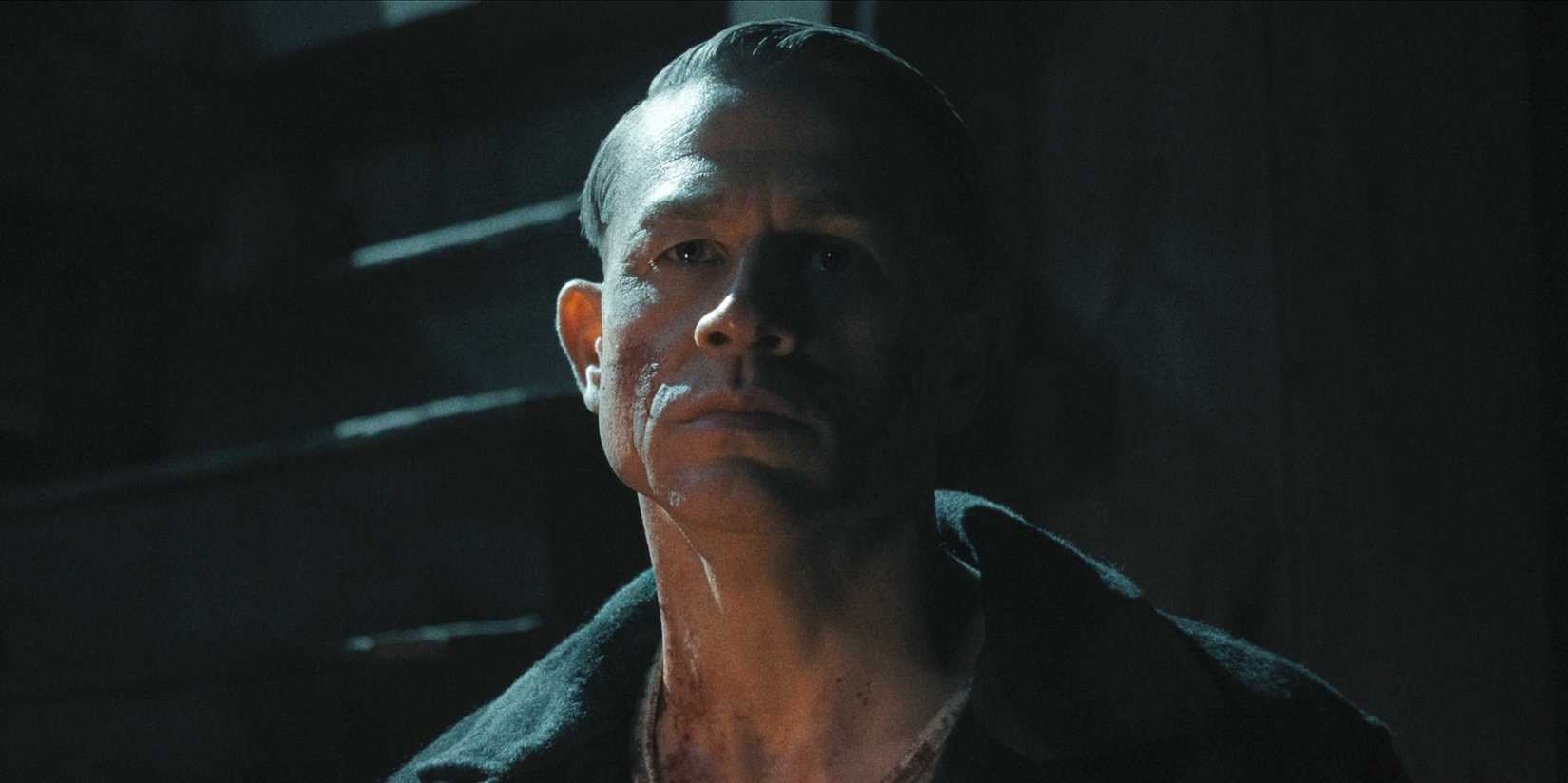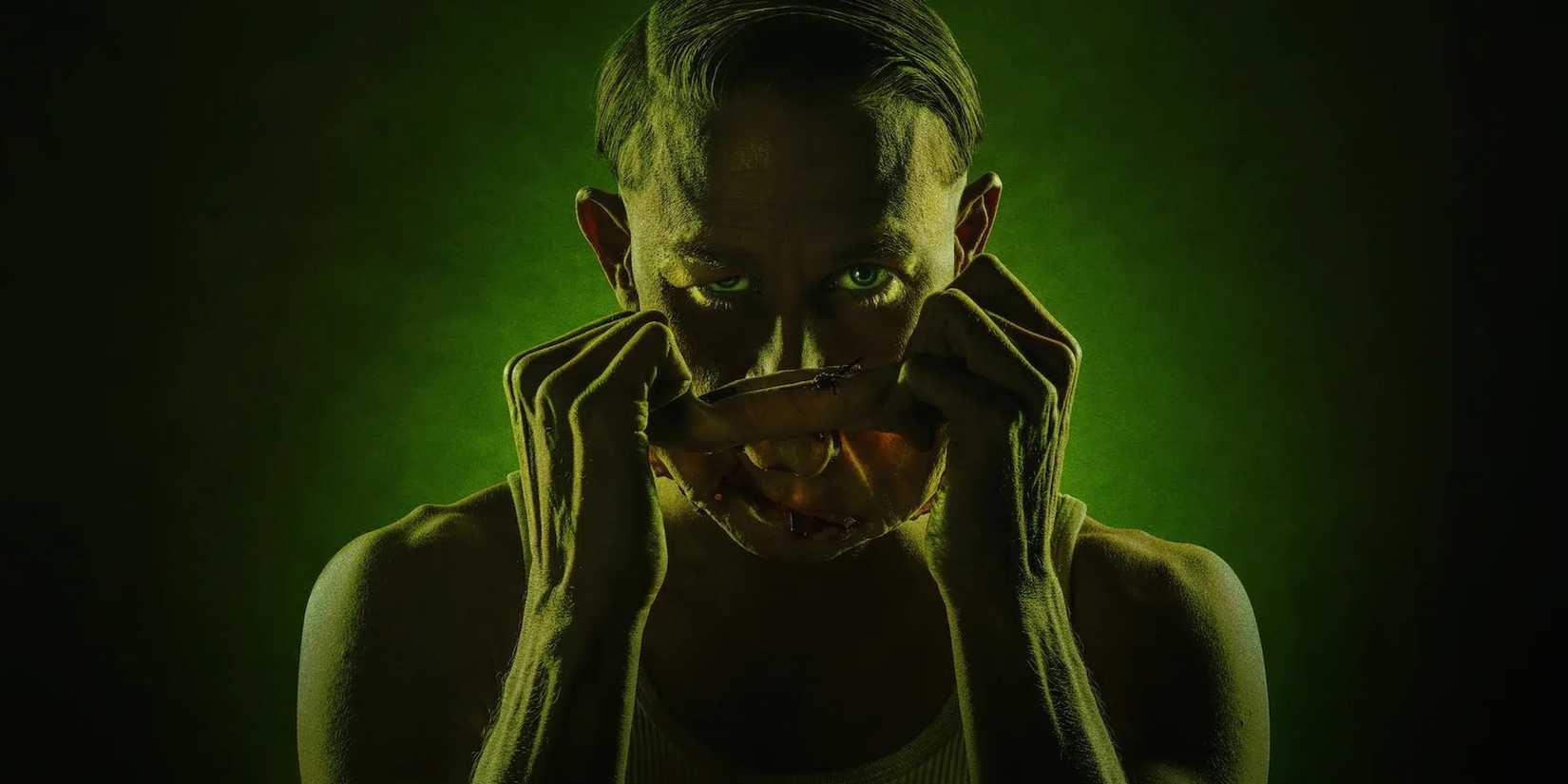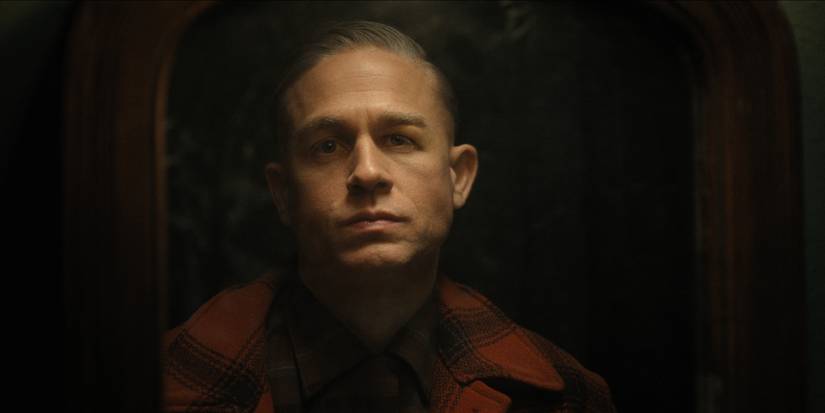This article discusses Ed Gein’s life and crimes and includes potentially disturbing topics such as murder, necrophilia, transphobia, and child abuse.
The largely negative critical reception of Monster: The Ed Gein Story is arguably unsurprising when readers learn just how far from reality the series strays. The term “True crime” has always been a little misleading, considering how many creative liberties filmmakers can take with the inspirations for their shows, podcasts, and movies.
Netflix’s controversial Monster anthology show is a case in point, with the first two seasons of showrunner Ryan Murphy’s true-crime series earning criticism for their inaccuracies and distortions of reality. However, by the time Monster: The Ed Gein Story’s ending rolls around, viewers could be forgiven for wishing to go back to seasons 1 and 2 of the series.
Monster: The Ed Gein Story purports to tell the story of the serial killer Ed Gein, delving into both his past and his larger-than-life impact on pop culture at the same time. There is a lot of potential in this premise.
After all, the story of Gein’s crimes at least partially inspired movies like The Texas Chain Saw Massacre, The Silence of the Lambs, and Psycho. Furthermore, Murphy and co-writer Ian Brennan have assembled an all-star cast including Charlie Hunnam, Laurie Metcalf, and even pop star Addison Rae for the miniseries.
Ed Gein Was Never Engaged To Adeline Watkins
Watkins And Gein Were Nowhere Near As Close As The Show Depicts
Sadly, Hunnam’s bizarre Ed Gein voice in Monster: The Ed Gein Story is an early warning of just how much the miniseries changes. Perhaps because the case is shrouded in mystery due to incomplete police investigations, or because the crimes occurred less recently than those of Jeffrey Dahmer and the Menendez Brothers, season 3 strays from anything resembling reality.
Fortunately, YouTube creator Medusone assembled a comprehensive takedown of the series backed up by extensive knowledge of the real-life case. Many of the distortions of truth, inaccuracies, and outright fabrications featured in Monster: The Ed Gein Story are lifted from famous books about Gein, which, as this creator notes, already featured plenty of dubious claims.
Perhaps most importantly, Ed Gein was never engaged to Adeline Watkins. Although the two did go on a few dates together, Watkins rejected his proposal. She did admit in an interview that they shared an interest in true-crime stories, but the extent of this interest is nowhere near what is depicted in Monster: The Ed Gein Story.
In Monster: The Ed Gein Story, Watkins has sex with Gein in a graveyard, knows about the murders and grave robbing he has committed, gets him a babysitting gig, and assists in covering up his crimes. There is no reason to believe that Watkins was even aware of Gein’s crimes, and their real-life relationship seemingly did not extend beyond a brief courtship.
Robert Bloch Was Not An Expert On Ed Gein
The Psycho Writer Wasn’t Even All That Interested In Gein’s Psychology
While Monster: The Ed Gein Story’s depiction of Adeline Watkins is absurdly inaccurate, she is not the only real-life figure that the show distorts. Psycho author and literary horror legend Robert Bloch is seen espousing his theories about Gein’s psychology at one point, explicating how the circumstances of his birth and upbringing shaped his personality.
This could not be further from the truth, as Bloch didn’t know much about Gein and didn’t care to. By his own admission, Bloch was inspired to write Psycho upon learning about Gein’s crimes since he was fascinated to find out that a small town had unknowingly harbored a serial killer in their midst for so long.
Beyond this vague concept of a quiet, seemingly ordinary person hiding a violent secret in a close-knit community, Bloch didn’t claim to have any insights into Gein’s mind. On the contrary, later in his life, he even said that Psycho wasn’t based on Ed Gein at all.
No, Ed Gein Didn’t Help The Police Catch Ted Bundy
This Mindhunter-Style Segue Is Pure Fantasy
Admittedly, Gein did inspire the basic premise of Psycho to an extent, much like his crimes were also used as creative fodder by the screenwriters of both The Texas Chain Saw Massacre and The Silence of the Lambs. Thus, while Bloch’s depiction overstates both his interest in Gein and his knowledge of the killer, it has some vague relation to observable reality.
In contrast, the closing episode of Monster: The Ed Gein Story, wherein Gein helps the police capture Ted Bundy, is complete fiction. Gein never cooperated with the FBI and was never interviewed by the Behavioral Science Unit. While his interviews were used by criminal psychologists to establish a theory of his motives, no clear conclusions were drawn from his complex case.
Ed Gein Most Likely Did Not Kill Evelyn Hartley
The Story of Addison Rae’s Character Is Far From Accurate
Although the entire miniseries is plagued by serious inaccuracies, Monster: The Ed Gein Story’s Evelyn Hartley plot line might be the most egregious departure from reality in the show’s history. First, the missing 15-year-old is played by 24-year-old singer and actor Addison Rae.
Secondly, there is no reason to believe that Gein killed Hartley as revenge for her taking his babysitting job. The pair would never have competed for the same babysitting jobs, as they lived in separate towns that weren’t easily traveled between by a child and a financially unstable man in 1950s Wisconsin.
Furthermore, it is not even clear whether Gein was the one who killed Evelyn Hartley. It is entirely possible, but a lot of crime scene evidence points to more than one man’s involvement in the crime, and Gein never worked with a known accomplice.
Ed Gein’s Interest In Christine Jorgensen Is Massively Exaggerated
Watkins Gifts Ed Jorgensen’s Book, Which Wasn’t Even Published Until After His Arrest
Although some viewers lauded Monster: The Ed Gein Story’s avoidance of some transphobic tropes that have haunted Gein’s story for years, the show’s depiction of Gein’s relationship with gender leaves a lot to be desired. Gein did have articles about what were then called “Sex change operations” in his possession, and displayed some interest in the topic.
However, he was not particularly fascinated with the real-life trans woman Christine Jorgensen, and the book written by Jorgensen that Watkins gives him in the show was not even published until after his imprisonment. Ironically, this erroneous link between the two only furthers the inaccurate, damaging view of Gein as a person suffering from gender dysphoria.
Ed Gein Did Not Murder His Brother, Henry Gein
The Mystery of Henry Gein’s Death Was Never Entirely Resolved
It is entirely possible that Ed Gein killed his brother Henry, but this is not something that investigators ever proved, and it is one of Monster: The Ed Gein Story’s first major divergences from reality. In real life, Gein’s brother was found dead from what was thought to be smoke inhalation or a heart attack.
The circumstances of his death were mysterious, with some sources claiming that bruises to his head implied foul play. However, Gein was not implicated in his death until years later, when this became part of the pop culture myth around the infamous Wisconsin serial killer.
Monster Season 3 Keeps The Most Infamous Ed Gein Myth Alive
Gein Never Claimed To Have Had Sex With Corpses
Maybe one of the most famous things about the Ed Gein story is the lurid fascination with how he treated human corpses. While Gein verifiably murdered two people, he exhumed the bodies of many more and used their corpses to fashion macabre clothes, masks, and household objects.
Credit where it is due, Monster: The Ed Gein Story’s depiction of Gein’s home is relatively accurate in this regard. However, much like Gein inspiring Psycho was exaggerated in the decades after his death, rumors of the killer’s treatment of these bodies also spread.
Gein never admitted to having sex with the corpses that he exhumed, although many have speculated that he did. Thus, Monster: The Ed Gein Story’s surprisingly visceral depiction of this act is merely conjecture, despite how popular the rumor remains.
Ed Gein’s Mother Was Not The Abusive Monster Depicted In Monster Season 3
Gein Himself Said His Father Was A Violent Tyrant
The most important inaccuracy in Monster: The Ed Gein Story is also the most common in stories about this famous serial killer. The many fictional serial killers inspired by Ed Gein almost invariably have issues with domineering mothers, and Monster: The Ed Gein Story’s title character is no exception.
Played by the legendary Laurie Metcalf, Gein’s mother is depicted as a violent tyrant who abuses her husband and drives her son to psychosis with her zealotry. Her hyper-conservative religious views on sex and relationships warp Gein’s young mind, meaning he is left unable to pursue a normal romantic connection after her death.
However, as shocking as it may sound, Gein’s real-life mother was not the abusive monster that Monster: The Ed Gein Story depicts. According to Gein’s own interviews, it was his father who was violently abusive toward himself and his brother, while his mother was a comparatively safe parent.
Gein’s mother did harbor many of the regressive views depicted in the show, but her constant mistreatment of her husband and sons is inaccurate. Gein’s father was physically abusive, and the impacts this had on his psychology are frequently under-explored or outright ignored, a mistake that Monster: The Ed Gein Story perpetuates.
This story originally appeared on Screenrant








